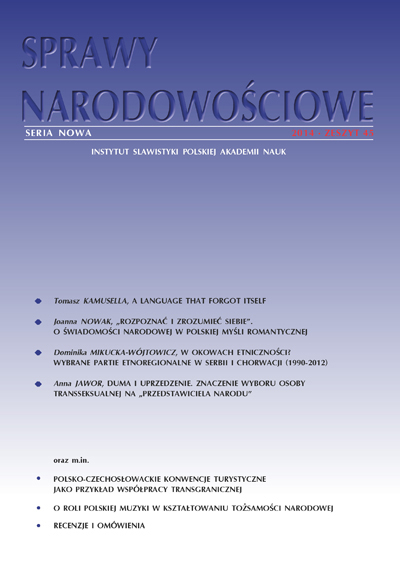Kwestie i spory religijne na terenie Rusi Zakarpackiej w czechosłowackim epizodzie jej dziejów
The issues and religious disputes in Carpathian Ruthenia in Czechoslovak period and its echoes behind the Atlantic
Author(s): Michał Jarnecki, Mykoła PalinczakSubject(s): Social Sciences, Sociology, Theology and Religion
Published by: Instytut Slawistyki Polskiej Akademii Nauk
Keywords: Subcarpathian Rus; Greek-Catholic (Uniate) Church; Orthodox church; carpathorusinian emigration in USA; the rivarly two religious camps
Summary/Abstract: In Subcarpathian Ruthenia in the interwar period – during her membership in Czechoslovakia, one of the sharper conflict was a dispute between two Christian churches. In fact, the rivalry of the two churches began even earlier, during the Hungarian reign – before 1918, but broke out with the new intensity in the interwar period. The Czech authorities, retained neutrality in the confessional disputes, unlike its predecessors, favoring the units. The dispute also had political significance – namely in the conflict between national orientations: Russophile and Ukrainian. Both churches were not monoliths and shook them as internal tensions, including politically motivated ones. Religious conflicts had also their roots and echoes on the other side of the Atlantic. Part of the Greek-Catholic immigrants Transcarpathian did not want to submit to the American Catholic hierarchy, who failed to see the specifics of this group of emigrants. During the period between the Uniate Church recorded outflow faithful to the Orthodox Church, by almost 5% (from nearly 55% to 50.2%) and Orthodox increase by approximately the same proportion – over 15% of the population.
Journal: Sprawy Narodowościowe
- Issue Year: 2014
- Issue No: 45
- Page Range: 88-105
- Page Count: 18
- Language: Polish

